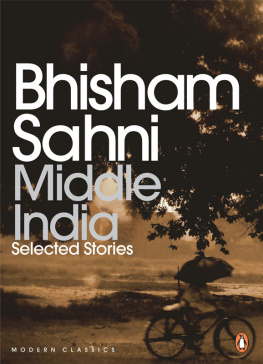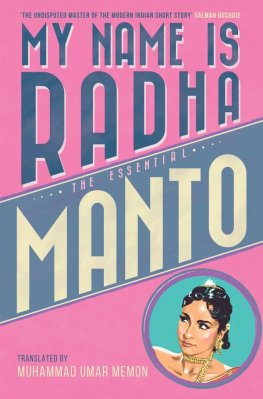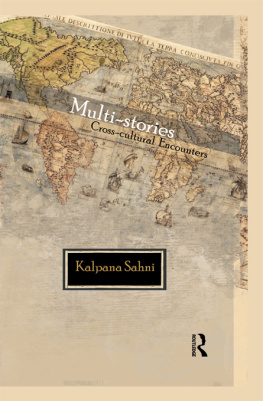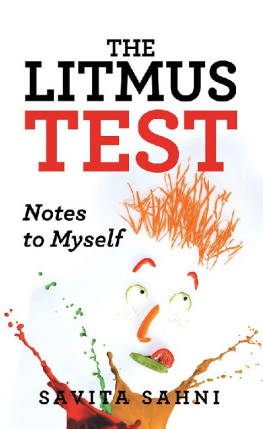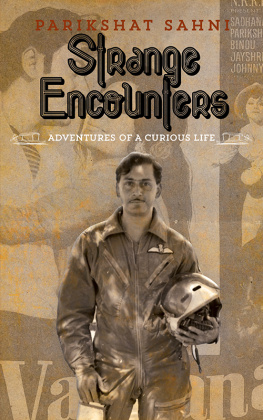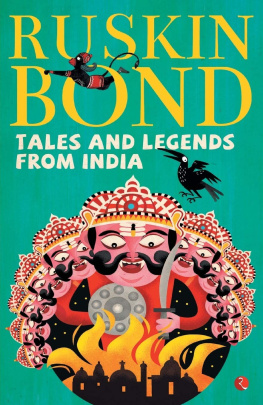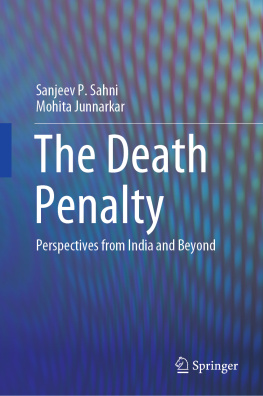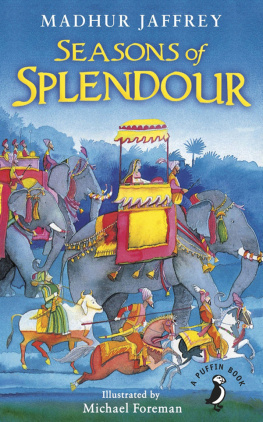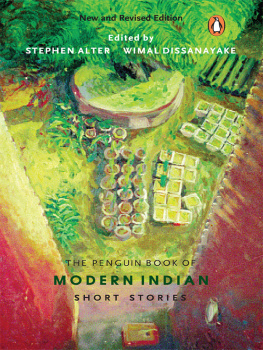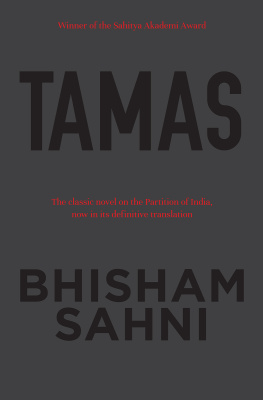PENGUIN BOOKS
Published by the Penguin Group
Penguin Books India Pvt. Ltd, 11 Community Centre, Panchsheel Park, New Delhi 110 017, India
Penguin Group (USA) Inc., 375 Hudson Street, New York, New York 10014, USA
Penguin Group (Canada), 90 Eglinton Avenue East, Suite 700, Toronto, Ontario, M4P 2Y3, Canada (a division of Pearson Penguin Canada Inc.)
Penguin Books Ltd, 80 Strand, London WC2R 0RL, England
Penguin Ireland, 25 St Stephens Green, Dublin 2, Ireland (a division of Penguin Books Ltd)
Penguin Group (Australia), 707 Collins Street, Melbourne, Victoria 3008, Australia (a division of Pearson Australia Group Pty Ltd)
Penguin Group (NZ), 67 Apollo Drive, Rosedale, Auckland 0632, New Zealand (a division of Pearson New Zealand Ltd)
Penguin Group (South Africa) (Pty) Ltd, Block D, Rosebank Office Park, 181 Jan Smuts Avenue, Parktown North, Johannesburg 2193, South Africa
Penguin Books Ltd, Registered Offices: 80 Strand, London WC2R 0RL, England
First published in India as Middle India: Selected Short Stories by Penguin Books India 2001
This edition published by Penguin Books India 2009
Copyright Bhisham Sahni 2001
This translation copyright Penguin Books India 2001
All rights reserved
ISBN 978-01-4306-646-0
This digital edition published in 2013.
e-ISBN: 978-81-8475-335-6
This is a work of fiction. Names, characters, places and incidents are either the product of the authors imagination or are used fictitiously and any resemblance to any actual person, living or dead, events or locales is entirely coincidental.
This book is sold subject to the condition that it shall not, by way of trade or otherwise, be lent, resold, hired out, or otherwise circulated without the publishers prior written consent in any form of binding or cover other than that in which it is published and without a similar condition including this condition being imposed on the subsequent purchaser and without limiting the rights under copyright reserved above, no part of this publication may be reproduced, stored in or introduced into a retrieval system, or transmitted in any form or by any means (electronic, mechanical, photocopying, recording or otherwise), without the prior written permission of both the copyright owner and the above-mentioned publisher of this book.
To Martand with all my love
PENGUIN BOOKS
MIDDLE INDIA
BHISHAM SAHNI (19152003) was born in into a devout Arya Samaj family in Rawalpindi. He earned a masters degree in English literature from Government College, Lahore. Upon his return to Rawalpindi, he joined his fathers import business and also began teaching, staging plays, writing stories and becoming involved in the activities of the Indian National Congress. He later earned a PhD from Punjab University.
After Partition, he and his family settled in Delhi, where he was a lecturer at a Delhi University college and took to writing more earnestly. His first collection of short stories, Bhagya Rekha (Line of Fate), was published in 1953. In 1957 Sahni moved to Moscow, during which time he translated several Russian books into Hindi, notably some works of Leo Tolstoy. He returned to Delhi in 1963 to resume teaching. He edited the literary journal Nai Kahaniyan from 1965 to 1967.
Sahni was a recipient of the Sahitya Akademi Award for his novel Tamas in 1976. He also received the Distinguished Writer Award of the Punjab government, the Lotus Award from the Afro-Asian Writers Association and the Sovietland Nehru Award. His writings include seven novels, nine collections of short stories, six plays and a biography of his late brother, the actor and writer Balraj Sahni. Many of his books have been translated into numerous foreign and most major Indian languages. In 1998 he was conferred an honorary doctorate by the Institute of English and Foreign Languages, Hyderabad and the Padma Bhushan. In 1999 he received the Shlaka Award, the highest literary award from the Delhi government.
GILLIAN WRIGHT is a journalist and author living in New Delhi. She studied both Hindi and Urdu at London University and has translated two modern classics of Hindi literature, Shrilal Shuklas Raag Darbari and Rahi Masoon Rezas Adha Gaon (available as A village Divided from Penguin India). Her other books include An Introduction to the Hill Stations of India, Sri Lanka, and Birds of the Indian Subcontinent. She has collaborated with Mark Tully on all his books including NoFull Stops in India, Heart of India and India in Slow Motion.
INTRODUCTION
I t has been a privilege for me to work with Bhisham Sahni, one of Hindi literatures most outstanding figures, whose many years as a teacher have made him a patient and supportive guide during this translation. The choice of stories in this collection is entirely his. I had thought that he would choose his personal favourites, but he preferred those which he has found have made the deepest impact and evoked the most response from the reading public when they were first published.
In the English-speaking world Bhisham Sahni is still best known for his Partition novel Tamas, but the stories he has selected here demonstrate the breadth of his range. Paali and Veero deal in different ways with abductions during Partition, but Aham Brahmasmi looks at the dilemma of an Anglophile Indian at the height of the freedom movement. In many of the other stories he focusses on the urban working and middle class of post-Partition India in the age before liberalization, portraying their ambition, greed, superstition, sorrows, adventures and misadventures, and the absurdity and crudity of the bureaucratic systems with which they have no choice but to interact. Several stories betray a keen sense of humour, particularly when he writes about his own circleliterary people and intellectuals.
Bhisham Sahni himself finds writing short stories much more demanding than novels, requiring greater precision of thought and expression. In his words, a short story is like lodging in a house one night and moving away the next morning, whereas a novel is like coming into a town where you have to bide for months on end. In a short story every word must have some eloquence, every utterance some significance. Readers will be struck by the simplicity and of his style, which is deliberate and linked to his belief that life should be presented directly with as few embellishments as possible.
He writes in Hindi flavoured with Punjabi, and theres no surprise about this. After all he is Punjabi, born in Rawalpindi and educated in Lahore. As he explains, Hindi has the advantage of being the language of many different areas, and Hindi writers in these different areas still have strong links with their own local dialects, idioms and folk culture. I hope that in places the Punjabi lilt to these stories comes through. Ever since Premchands time, Hindi short-story writing has had a strong social orientation. In this book, Bhisham Sahni comments subtly on many issues from Indo-Pakistan relations and the nature of war, to alienation and belonging.
I have thoroughly enjoyed translating these stories, and I hope that now that I hand them over to you, the reader, they will meet with your approval.

